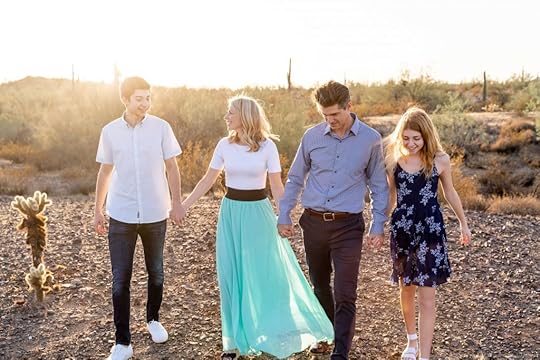10 Things We’ve Never Regretted Spending Money On with Kids at Home

Some people assume that minimalists never spend any money. And to be fair, some work hard not to.
But minimalism, on its surface, isn’t necessarily about not spending money. Minimalism is about redirecting your money towards more important pursuits than physical possessions.
Minimalism recognizes that resources are finite and life is a trade-off. Money not spent on material possessions means more money available for other pursuits. And not just money, but time and energy and focus.
Because we have pursued minimalism for the last 12 years, and have spent less money on possessions, we have more money left over for other things which we have found helpful as a family.
Here are 10 things we’ve never regretted spending money on (with kids at home).Many items on this list exist only because we adopted minimalist principles.
1. Travel.
One of the first things we did after adopting a minimalist life and saving money was took our young children on an overnight trip to the beach. We explained to them, even at a young age, how owning less freed us to splurge on this trip. It set a wonderful culture for our family and we’ve gone on many memorable trips since then.
2. New Restaurants.
My children, now teenagers, have grown to appreciate new and fine foods. When we travel, and even here at home, we are always on the lookout for new restaurants, new foods, and new menus. Trying a new restaurant always results in an enjoyable evening together.
3. Visiting Family.
Kim’s family lives in Omaha, NE. My family lives in Aberdeen, SD. Two times every year we head back to the Midwest to spend time with them. I love being with my family and my kids have great relationships with their grandparents and cousins. I’ve never regretted making that a financial commitment.
4. Memorable Experiences.
Memorable experiences with our kids still at home have been one of the most significant payoffs of living a minimalist lifestyle. Travel counts as memorable, so does visiting fun restaurants. But we’ve also made a point to attend local professional sporting events or theater and museums as well. I’m glad we chose to invest money in those memories.
5. Organized Sports/Activities.
My son has played on a number of sports teams growing up, so has my daughter. Alexa has also been involved in dance and theatrical productions. Almost all of these hobbies and activities have required equipment to varying degrees.
I understand the power of minimalism, but I also recognize the importance of being prepared and equipped for your team and coach. So we’ve definitely bought some supplies over the years that we wouldn’t have purchased otherwise, but I don’t regret it. Sports and activities build valuable life skills.
6. Giving.
When my kids were in their early-teens, we gave away the money from my book contract (The More of Less and The Minimalist Home) to begin The Hope Effect. I’m thankful my kids were here, at home, so they could see that decision and what it meant for our family and orphaned children around the world.
Generosity is a value I hope they will take forward in life.
7. Education.
School requires supplies. There are, obviously, ways to go overboard in purchasing things for school. And I hope we walked that line well. But we considered it important for them to have everything they need to thrive in school and academic pursuits.
8. Celebrating Accomplishments.
Kim always pushes me in this direction—spending the time and effort (and money) to properly celebrate milestones and accomplishments in our families’ lives. I am thankful she did.
9. Spending time with Friends.
We want our kids to make memories with friends while they are young. Hopefully at our home, but also enjoying time out in the world. It’s certainly not always required to spend money to make memories with friends. But when it was, I am thankful that we were able to provide that.
10. Family Photos.
We don’t take a lot of family photos, but I am thankful for every time we did.
I once received an email from a reader that I have never forgotten. The woman emailed me to mention how financial discipline had paid off for her and her husband. Specifically, as she said in the email, “We have reached retirement and because of fiscal discipline, we have all of our needs cared for.”
But then she concluded with this sentence, “However, if I could have done anything different, I would have spent a little more money when my kids were younger building valuable memories.”
From the moment I read her email I was touched by it and inspired to make sure I wouldn’t have similar regrets.




